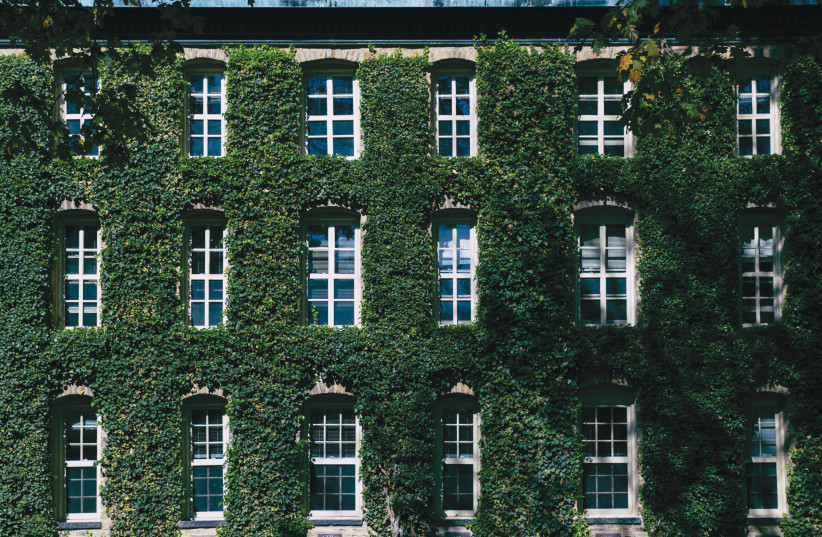Having spent a 50-year career teaching American government to some 15,000 mainly minority students at a CUNY community college, the following suggestion directed at the venerable eight-member Ivy League group of colleges might seem presumptuous: I propose the creation of a combined alumni federation from these individual campuses to fight the irrefutable signs of antisemitism that exist there.
In researching my book, Strangers and Natives, a Newspaper Narrative of Early Jewish America, 1734-1869, I realized that manifestations of antisemitism did not always exist at those elite colleges. I found that in this country’s formative years, the Hebrew language and Old Testament references were greatly admired.
For example, consider the career of Rev. Ezra Stiles, president of Yale College from 1778-1795. Previously, as minister of Newport, Rhode Island’s Second Congregational Church, he attended many services at the Newport Hebrew Congregation in order to enhance his knowledge of Hebrew and Judaic matters. As Yale’s president, Stiles instituted a policy requiring all freshmen to study Hebrew. In 1781, he delivered his first commencement address in Hebrew. In 1785 and 1793, Hebrew was the language in which the valedictorians delivered their speeches. The university’s signature motto, from its founding, were the Hebrew words, “Urim Vetumim,” meaning light and truth and referring to some of the vestments used by high priests in the ancient Temple of Jerusalem..
Two hundred and fifty years later, the campus Yale Daily News has been accused of carrying antisemitic articles, rants attacking Israeli colonialism and apartheid have taken place in classrooms, pro-Israel signs have been torn down and Jewish student applicants are being admitted in far smaller numbers.
How to stop Ivy League antisemitism: A cross-campus pro-Israel advocacy group
My suggestion is the creation of a single cross-campus, pro-Israel advocacy group that would confront antisemitism in the eye. It would deal with mounting restrictions on Jewish student admission, limits on hiring new Jewish faculty, hateful classroom attacks on Israel, accusations against Israel for killing Palestinians and harvesting their organs for sale, antisemitic course-reading lists, racist campus guest speakers, and possible incidents of violence directed against Jewish students. The establishment Jewish “defense” organizations are not confronting this antisemitic growth, as the increase in occurrences testify. Progressive ideology on campus is growing, shown by the upswing of brazen attacks on Israel.

Limiting this new pro-Jewish group to the eight Ivies would prevent diffusion of efforts. Since these colleges are prestigious, successes there would carry over to colleges with less celebrity. Of course, a professional staff must be in order to advocate both on campus and in the media. Membership need not be limited to Jews, as Israel’s friends come from all backgrounds.
Who would pay for all this? Whether stated openly or not, angry alumni – pained by campus antisemitism and hostile college administrations and refusing to donate to their alma maters – would change the equation. The mammoth endowments of these eight universities range from Harvard’s $50.9 billion to Brown’s $6.5b. Nonetheless, despite the existence of thousands of Jewish alumni, many from the ranks of assimilated, secular Jews would regrettably not be on board in publicly challenging campus antisemitism. Perhaps enough dedicated, savvy Jews would surface to meet the challenge.
When John Adams (1735-1826), the second president of the United States, entered Harvard, then a theological seminary, he was required to study Hebrew, Latin, and Greek. Based on his studies, Adams wrote: “They [the Jews] are the most glorious nation that ever inhabited this earth. The Romans and their empire were but a bubble in comparison to the Jews. They have given religion in three quarters of the globe and have influenced the affairs of mankind more and happily than any other nation, ancient or modern.”
I am hopeful that once this new Ivy League-directed advocacy group unmasks the hateful antisemitic scene, this tribute by Adams will emerge as the new campus barometer.
The writer is an emeritus professor of political science at City University of New York.
